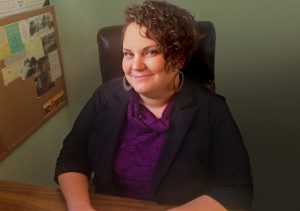Mitchell Hamline and its predecessor schools have a long history of offering students on-the-job experience through externships.
Externships give students a chance to practice what they learn in the classroom in a variety of high-profile legal settings throughout the region.
Now, for the first time, Mitchell Hamline has extended that opportunity to its HYBRID J.D. program, the school’s one-of-a-kind, part-time, on-campus and online program that includes students from all over the United States. Already 20 students have lined up customized externships for the spring semester.
How does Mitchell Hamline coordinate externships for students who are studying all over the country?
First, the students seek out an attorney they want to work with in their own community, in a legal setting that’s best aligned with their career goals. That process also gives students a head start on cultivating their own legal network.
Then, Mitchell Hamline’s Career and Professional Development office works with the attorney to ensure students will receive a high-quality externship experience.
After that, the supervising attorney and the student work out the details of the semester-long externship.
The effort shows that Mitchell Hamline is committed to providing practical legal experience to all students, according to Andy Lehner ’07 (WMCL), assistant director of Mitchell Hamline’s Career and Professional Development office.
“Hands-on experience is critical in preparing lawyers to be lawyers,” Lehner said. “We’ve made it a priority to give every Mitchell Hamline student the opportunity to gain hands-on experience through externships, and the Hybrid Program students are no exception.”
Professor Ann Juergens developed the first externship course for students in the program. Juergens said the externships go beyond giving students workplace experience.
“This is the law in a different context than in the classroom,” Juergens said. “They learn something about themselves in the workplace. That’s going to help them choose work they’ll be happy and satisfied with in the long run.”
Juergens is impressed with the quality of the externships students have been able to coordinate so far.
“It speaks to the creativity and energy of the students in the HYBRID J.D. program,” Juergens said. “They had to go out and find these externships and develop these opportunities.”
Bethany Lambert, 3L, is involved in an externship at CHRISTUS Health, a hospital chain in the southern United States. Lambert’s externship is based in San Antonio, Texas, where she’s working in the compliance and privacy division.
“I’m shadowing the staff and contributing to a variety of projects,” she said. “I am going to meetings, trainings, and will be participating in auditing, among other opportunities.”
Lambert hasn’t decided what she wants to do after graduation, but she enjoys working in health law and compliance and hopes her externship helps her become better at communicating compliance standards and regulations to hospital staff.
Peter Anderson’s externship is in the corporate and business legal transactions division at Orbis Corporation in Oconomowoc, Wis.
Anderson, a 3L, is working with the company’s general counsel to learn the day-to-day responsibilities of a lawyer in the business world.
“It’s exciting to be able to do activities that involve lawyers outside of academia,” Anderson said. “And to be able to use what we have learned in the classroom and apply it outside the walls of the school.”
After graduation, Anderson hopes to work in criminal law prosecution.
For Taylor Levy, a 3L, the externship program is a good fit with her current work.
Levy is the legal program coordinator at Annunciation House, an El Paso, Texas, nonprofit organization that assists migrants, the homeless, and people facing economic hardships.
It’s the same sort of work she’s doing in her externship at the office of El Paso attorney Lynn Coyle.
“I’m working on the early stages of several pieces of civil-rights legislation,” Levy said. “Including conducting informal discovery, researching case law, and drafting pleadings.”
The firm was excited to bring her on board. El Paso doesn’t have a law school, Levy noted, so having a legal extern is a rare opportunity for the office. Levy also said the firm recognized Mitchell Hamline’s reputation in practical legal education and found setting up the externship was a smooth process.
Once she graduates from Mitchell Hamline, Levy plans to continue to provide legal help in immigration matters to primarily low-income clients, either in a non-profit or private firm.
“The intersections between immigration law and civil rights law are numerous and growing,” she said. “I hope my externship will enable me to more adeptly serve my immigrant clients in the future.”

